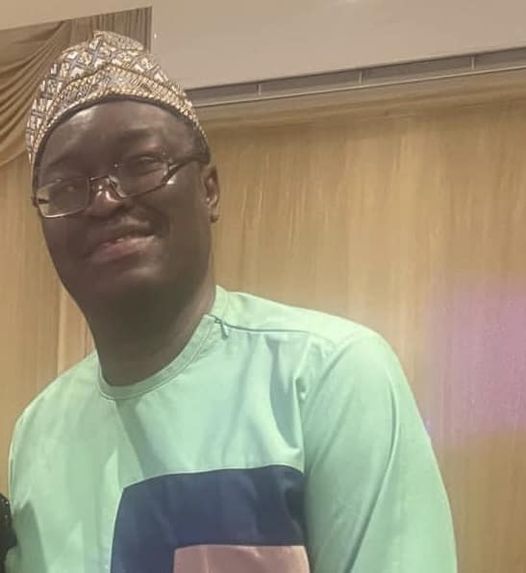There are no products in your shopping cart.
| 0 Items | £0.00 |


Ayo Akinfe
[1] Jigawa State in the far north of Nigeria, bordering Niger Republic, bears the nickname The New World. Totally meaningless if you ask me. Personally, I would rename the state Land of Clean Energy because it has the potential to supply the whole of Nigeria with a combination of hydro-electric and solar power, generating billions of dollars of revenue for itself
[2] In a 2021 human index survey of all Nigeria’s states and the Federal Capital Territory, Jigawa ranked 33rd out of 37. This tells me that the state is shamelessly wholly dependent on the cursed federal allocation for its survival and does little to generate its own wealth. I am throwing the gauntlet down to all my friends from Jigawa today. Please confront your governor and tell him that this parasitic nonsense has to end now, now, now because your state has all the natural and human resources required to generate four times the paltry handout it gets from Abuja every month
[3] For staters, Jigawa sits bang in the middle of the Hadejia River Basin and is criss-crossed by the Rivers Hadeija, Yobe, Katagum, Jama’are, Misau and Dogwalu. So intense is this Jigawa wetland that the state suffers from over-flooding every dear. Jigawa State desperately needs about half a dozen dams and artificial lakes to solve the twin problems of over-flooding and power supply. Were I the state governor I would float the Jigawa Power Generation Corporation centred around a massive hydro-electric power plant, with a mandate to generate at least 10,000MW annually
[4] Still on energy, Jigawa is another state close to West Africa’s arid Sahelian region. Can someone please explain to me why the local governments in the far north of Jigawa State like Birinawa, Guri, Kaugama, Maigatari, Sule Tankarkar, Babura, Kazaure, Yankwashi, Gwiwa, Roni and Malam Madori are not all huge solar farms. We should then have a thriving solar panel manufacturing industry across the state, with the headquarters of all these local government areas being home to industrial estate where the factories are located
[5] Were I the Jigawa State governor I would in fact do something more audacious How about joining the global fad of building solar highways? Build a Dutse to Hadejia Solar Highway whereby the road charges your car as you drive along. Make this 145km stretch of road the most famous highway on the African continent. Everyone else is thinking this way globally, so what prevents us from joining the bandwagon?
[6] Still on the subject of the Sahelian climate, Jigawa State is ideal to grow crops like millet, sorghum, cotton, gum arabic, dates, cowpeas, guar gum , soyabeans, pepper, sesame seed and groundnuts. With its 23,154 square kilometre area, Jigawa has plenty of land for commercial farms. I want to see the Jigawa Farming Cooperative Scheme launched under which all farmers in each of the state’s 27 local government areas belong to a cooperative in which the state government has a 25% stake. These cooperatives will run plantations and also own huge processing plants in Jigawa’s urban centres like Dutse, Gumel, Hadejia, Birnin Kudu and Kazaure, etc
[7] Jigawa State is also famous for the Dutsen Habude cave paintings in the town of Birnin Kudu, which have been dated back to the Neolithic period. Also, Hadejia is notable as being one of the traditional seven original Hausa states. Both locations should have a thriving tourism industry so it falls on the Jigawa State government to ensure that facilities like hotels, bars, restaurants, cafes, amusement arcades, theme parks, etc, are all built there
[8] Jigawa is another Nigerian state that is suffering from the effects of desert encroachment. To solve the problem, the Jigawa State government has to adopt the Mexican solution by planting cactus trees all across its northern perimeter. If Mexico can generate $10m annually from the sale of processed cactus products, why can’t Jigawa State too? Float a Jigawa Cactus Processing Company in Dutse to manufacture cactus soap, oil, tequila, cream, medicinal herbs, meal, etc
[9] Deposits of soda ash or trona exists in lakes and the salt plains of the arid region of eastern Jigawa State. Reserve estimates are said to be around 20m tonnes. Trona is used for pharmaceuticals, textiles, leather works, glass production and soap and detergent production. Again, massive manufacturing plants are required in urban centres like Duse, Kazaure, Hadejia, Gumel, etc to convert this raw material into finished products
[10] Jigawa State also has substantial solid mineral deposits. Raw materials abundant in the state include granite and kaolin. A variety of beautiful granite of different colours and textures can be found in Dutse, Birnin Kudu and Gwaram local government areas. As per kaolin, large deposits abound in Dutse, Gwaram, Kazaure and Roni local government areas. Has the state government considered floating a Jigawa Solid Minerals Company under a public private partnership agreement that can prospect for, mine, process and market these commodities?